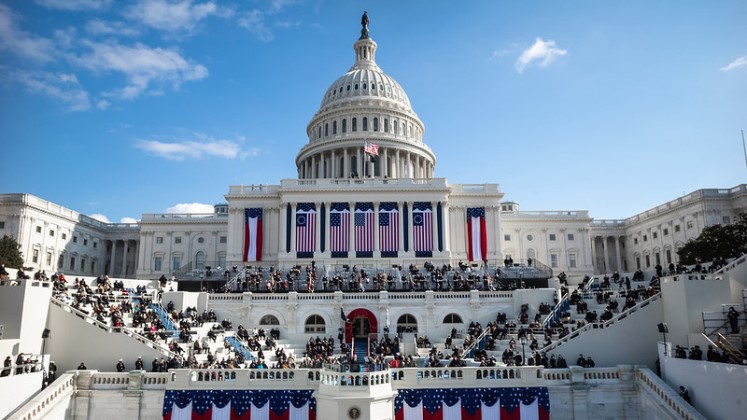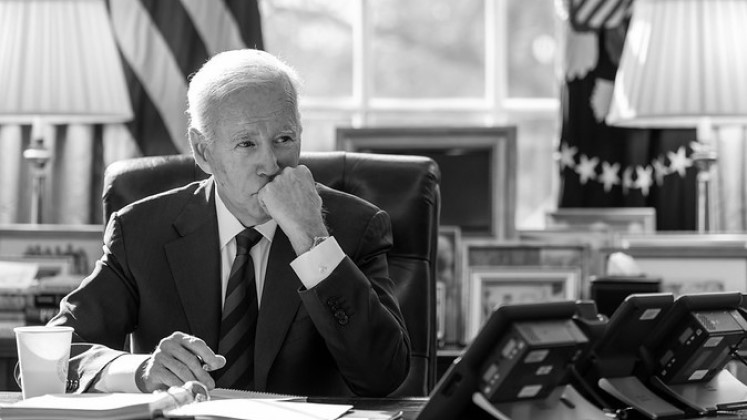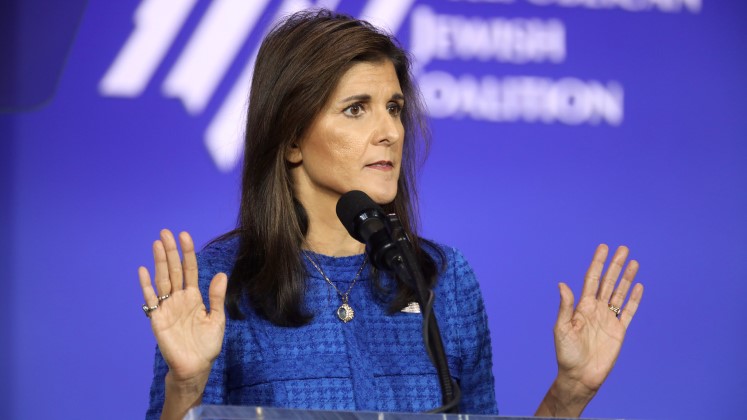 Last night President Joe Biden and former President Trump met in Atlanta for the first 2024 presidential election debate. Peter Finn writes that Biden’s lack of energy and difficulties articulating his points will feed into existing negative narratives about the incumbent president’s fitness for office, while Trump’s relatively restrained performance may persuade some swing voters.
Last night President Joe Biden and former President Trump met in Atlanta for the first 2024 presidential election debate. Peter Finn writes that Biden’s lack of energy and difficulties articulating his points will feed into existing negative narratives about the incumbent president’s fitness for office, while Trump’s relatively restrained performance may persuade some swing voters.
- This article is part of ‘The 2024 Elections’ series curated by Peter Finn (Kingston University). Ahead of the 2024 election, this series is exploring US elections at the state and national level. If you are interested in contributing to the series, contact Peter Finn (p.finn@kingston.ac.uk).
In an unbroken tradition stretching back to the 1976 debate between Republican President Gerald Ford, and Jimmy Carter, the Democratic challenger who ultimately won the presidency in 1976, the evening of June 27th 2024 saw US President Joe Biden of the Democratic Party and former President Donald Trump of the Republican party face each other in a televised presidential debate shown on CNN. It was the first of two debates scheduled between the candidates, with the second one due to be aired by ABC on September 10. There are plans for a vice presidential debate to be held in either July or August, which Vice President Kamala Harris has accepted, but as of the time of writing, there is no-Trump vice-presidential nominee, nor had the invitation for a debate been accepted by the Trump campaign.
Though there are, as yet, no polls that take into account the candidates’ debate performances, and thus one should be wary about making any claims regarding the impact of the debate, there are some clear themes that are already beginning to take shape.
Firstly, the debate provided material for those wishing to portray Biden as unfit to deal with the rigors of being US president. At times he struggled to clearly articulate his answers, whilst at others he seemed to lack energy. As such, this debate will likely add to negative narratives related to Biden that have previously been teased out of a variety of sources such as a Special Counsel report into his handling of classified material.
In terms of Trump, he managed to put in a relatively restrained performance, shaving off, even if just for a single debate, some of the rougher edges of his persona. That said, and in a continuation of his previous form, made false claims (and it seems Biden also made some, though the former president appears to have made many more).
One restrained debate performance by Trump is, of course, unlikely to persuade those heavily entrenched within the Democratic Party. However, in a closely fought election, and especially if he manages to maintain such disciplined messaging (a big if!), it may persuade some of the much-vaunted swing voters who look poised to decide the presidential election in November. Another big question on the Trump side of the ledger is, of course, if his ongoing legal travails will make any significant dent in his support specifically, or the election in general.
In terms of overall takeaways, and with the above caveat that one should wait for more information before coming to any firm conclusions in mind, the debate appears likely to feed into pre-existing narratives about Biden, whilst those surrounding Trump are likely to be relieved that he managed to avoid stoking any significant controversies.
- Header images: “Donald Trump” (CC BY-SA 2.0) by Gage Skidmore; “P20220901AS-1480_j.psd” by The White House is United States government work.
- Please read our comments policy before commenting.
- Note: This article gives the views of the author, and not the position of USAPP – American Politics and Policy, nor the London School of Economics.
- Shortened URL for this post: https://wp.me/p3I2YF-e2h






